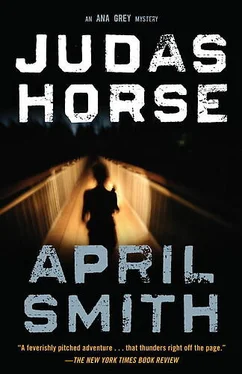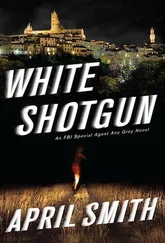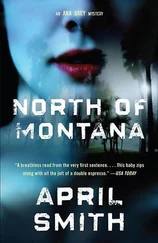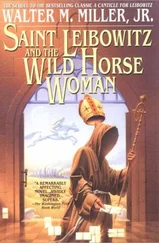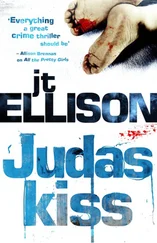“Makes you sick,” he says.
“Oh God.”
I’m losing my resolve. Between the primacy of the mission and the bond I’ve made with Lillian, Dot, Megan, and the others, I’m done. After a sleepless night crammed four to a cell and with zero food, I have a killer headache and my breath could melt steel.
“This was supposed to be a controlled operation. To lose a life—” I clamp both hands over my face. “I want to go home.” “I didn’t hear that.”
I raise my eyes. “Lillian had a heart attack.”
“Who’s Lillian?”
His ignorance inflames me.
“The lady who got trapped in the corral!” I snap. “Elderly, a bird-watcher? You don’t know about Lillian? ” He shrugs. “I heard something about a protester being taken to the hospital.” “But you were more concerned with Officer Mackee.” Donnato’s eyes grow hard. “Frankly…yes.”
“Let me tell you about Lillian.” Finger pointing again. “She’s close to eighty. She had a heart-valve replacement, but she didn’t tell anyone because she was afraid they wouldn’t let her come.” “Good idea.”
“Mike! She risked her life for the horses!”
Donnato settles into himself. “Ana,” he says very carefully, “you’re sounding a lot like the other side.” “I was on the other side, and I think the deputies responded with unnecessary force.” He waits.
“Think again.”
He doesn’t want to report what I’m saying.
“Mackee was one of those guys, ‘proud as hell to be a cop,’” Donnato says. “The one who organizes the department trip to Kodiak Island to fly-fish for salmon, know what I mean?” I nod, understanding the message.
“Three children, ages six through eight, and a wife of ten years who’s a parole officer for juvenile offenders.” “Always the good people,” I murmur, and lay my head on the table, completely dissipated. “SWAT had to respond. You’re right. I don’t know what’s wrong with me. Exhaustion.” “Want some coffee?”
“Just shoot it in my arm.”
He opens the door and speaks to the deputies, giving them the message the suspect is at that point where the thing could turn on a friendly cup of joe. He comes back in and touches my shoulder, a signal to get it together.
“I’m okay.” I sit up, resuming the posture. “I’m past it.” My partner nods. Will he ignore the lapse?
“We located the shooting site beyond the perimeter,” he continues matter-of-factly. “It was a heavy sniper rifle, an M93, something like that. You can tell from the blast-pattern plume it left in the dust. It’s a sniping rifle, not for antipersonnel use, but antimatériel. They used them from fixed positions in the Vietnam War.” “Why so heavy? It must be a bitch to break down and carry.” “What the shooter had. How he was trained.”
“In the Army?”
“Maybe. Army snipers shoot from a tripod. This joker shoots off a pack. There was a depression on the ground and a trail in the dirt where he dragged it behind him. Still, it was a hell of a shot. Correcting for drop and wind? A thousand yards away in the dark? This is someone with the training and resolve to sit out there and make the shot.” “Dick Stone?”
“Or,” says Donnato, “someone hired by Stone. Except he didn’t get his money’s worth. A good sniper never leaves his brass behind. And this guy did. We recovered the bullet casing.” “That was a mistake.”
“Big-time. We have the slug from the roof. All we need is the weapon it came from. A suspect is in custody. Barnaby Nuñez, Native American, thirty-eight years old, priors for DUI and domestic abuse. Picked up three miles from the corrals. Fired from working at a filling station, claimed racial discrimination, arrested for trespass and making threats against the manager. Theory is, he uses the mustang protest as a way to make things right. Former Marine, which fits.” The deputy brings coffee for the prisoner, hot and black as road tar.
When he’s gone: “Did you get anything in the cell from Megan?” “Nothing hard. I wonder if she knows what Dick Stone’s really up to.” Donnato sips the coffee. “Will she flip?”
“They’re in love.” I blush for no apparent reason. “Here’s what she told me in the lockup: ‘I don’t have a thing about cops. They’re human beings doing their job. But when they get into our face, they have to be stopped. We have a constitutional right to express our opinions without being spied on.’ She said there was ‘a fed’ hanging around Omar’s, but that Julius was ‘on to him’ and he stopped showing up.” Donnato and I are silent, holding each other’s eyes. The heart-heavy sorrow I felt hearing of Steve Crawford’s death comes over me again.
“Dick Stone made Steve Crawford for an undercover,” Donnato says quietly.
“Megan says he did. But the way she makes it sound, Steve blew it from the start by coming on too strong.” Troubled, I add, “He knew better. He would not have been that sloppy.” “You’re right — Steve knew what he was doing. He was like a low-flying missile when he was on to something. Remember the money he raised for Jane Doe?” I remember looking up to find Steve Crawford bending over my desk with that look of earnest resolve. He was collecting money for a funeral. The funeral was for a little girl he’d never known, a Jane Doe, who wore teddy bear pajama pants and a T-shirt with sparkles. The remnants of a woven friendship bracelet circled the bones of her wrist.
She was badly decomposed. It took a team of forensic experts to reconstruct her age — between ten and fifteen years old. She was healthy and well fed, no drugs, strangled with a nylon rope. Steve Crawford and I were on the kidnap squad at the time. We worked with the Glendale sheriff’s department and NCIC and our own cold-case files, but we never got a hit. Nobody claimed the body.
Steve Crawford did not discover Jane Doe in a cardboard box in a hospital parking lot in Glendale, but he was the one who took her into his heart. He and Tina had just had their first baby, and here was a child abandoned, in the cruelest way. The idea of her being buried as an unknown in a common crypt ate at him. “She suffered enough,” he said, and took it upon himself to go from door to door, house to house, desk to desk to raise money to lay her to rest with dignity. Word spread through the media. Strangers donated more than eight thousand dollars.
Six of us from the office attended the funeral. It was pouring rain and the most beautiful thing I have ever seen. We lined up in our polished Bu-cars behind a donated hearse that held a small white casket. The Glendale police and fire departments followed in slow parade, and Jane Doe was buried under the epitaph “Here lies a child of God.” Is it the caffeine from the sour jailhouse coffee kicking in that makes me flush with restless torment? I remember Steve’s look of disturbed satisfaction as he stood at the grave. Despite the clouds, he wore black wraparound sunglasses. The wind blew his blond hair, but the muscles of his face were motionless; a military stillness that said, I will stand. I will stand for this little girl. I will make it right.
Did Stone kill him? We don’t know. Climbing through the forest, nothing would have given Steve a clue that things were far from right. The fern glen that exploded into a debris field, and later became a field of snow, must have been silent. Steve would have had every reason to believe he was alone, but in fact he was being set up for an ambush — exactly like FBI Special Agents Jack Coler and Ron Williams in the mid-seventies, ambushed while driving a dirt road on a South Dakota Indian reservation. The siege by Native Americans at Wounded Knee was over, the FBI humiliated by an unwinnable takeover from which they had to withdraw, but a month later the two agents on patrol were gunned down with semiautomatics, because they were symbols of the U.S. government.
Читать дальше
